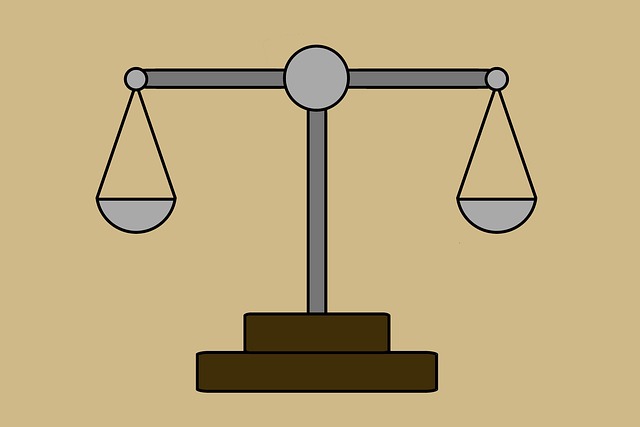In Washington County, Oregon, contempt of court is a serious issue with significant consequences. Oregon's strict legal framework outlines penalties, from fines to imprisonment, for non-compliance with court orders. Legal professionals specializing in contempt strategies are crucial for avoiding harsh enforcement, which involves citations, warrants, and resolutions like education or mediation. Understanding state guidelines, evaluating non-compliance causes, and adhering to court orders through proactive communication are key to navigating these complex issues, ensuring just and efficient legal procedures.
Navigating complex contempt of court issues in Washington County requires a deep understanding of both the local context and applicable laws. This article delves into the intricacies of contempt, specifically focusing on its definition and how it differs in Washington County. It explores Oregon’s legal guidelines and presents effective strategies to address contempt disputes, emphasizing compliance with orders as a key component. By examining these approaches, individuals and attorneys can better resolve complex contempt legal issues in Washington County.
- Understanding Contempt of Court: Definition and Washington County Context
- Legal Enforcement Mechanisms for Compliance with Orders
- Oregon Legal Guidelines and Strategies for Addressing Contempt Issues
- Effective Legal Approaches to Resolving Complex Contempt Disputes in Washington County
Understanding Contempt of Court: Definition and Washington County Context

Contempt of court is a serious legal issue that arises when an individual or party fails to comply with a court order. It’s a tool used by legal systems, including those in Washington County, Oregon, to ensure compliance with judicial decisions and maintain the integrity of the legal process. In this context, contempt can range from deliberate non-compliance to unintentional neglect of court-mandated actions. Washington County disputes are no exception, and understanding contempt of court is crucial for all parties involved.
Oregon’s legal guidelines define and penalize contempt, emphasizing the importance of adhering to court orders. When a party fails to comply, it can lead to various legal strategies to enforce these orders. These strategies may include financial penalties, civil or even criminal sanctions, and in severe cases, imprisonment. Navigating contempt legal issues requires a thorough understanding of the Oregon legal framework, making it imperative for individuals and their legal representatives to prioritize compliance with court orders to avoid such consequences.
Legal Enforcement Mechanisms for Compliance with Orders

In situations of contempt of court, where parties fail to comply with ordered obligations, legal enforcement mechanisms come into play. These mechanisms are designed to ensure compliance with orders, particularly in Washington County disputes, by leveraging various legal enforcement strategies. The process often involves issuing citations or warrants, which can lead to consequences such as fines, imprisonment, or both, depending on the jurisdiction and the severity of the contempt.
In states like Oregon, where legal guidelines governing contempt legal issues are stringent, courts have the authority to invoke these measures. Legal professionals skilled in contempt legal strategies play a pivotal role in representing clients facing such charges. They navigate the complex landscape, advising their clients on rights and options while exploring potential resolutions that avoid or mitigate the need for draconian enforcement actions.
Oregon Legal Guidelines and Strategies for Addressing Contempt Issues

In Oregon, resolving complex contempt of court issues requires a thorough understanding of the state’s legal guidelines and effective strategies to ensure compliance with orders. Washington County disputes are no exception, demanding meticulous navigation through legal procedures designed to hold individuals accountable for ignoring or willfully violating court mandates.
Oregon’s approach emphasizes the importance of legal enforcement mechanisms while offering flexible avenues to resolve contempt cases. The state’s contempt legal strategies often involve a combination of educational interventions, mediation, and, as a last resort, coercive measures such as fines or imprisonment. Key considerations include evaluating the underlying cause of non-compliance, assessing the urgency of the matter, and tailoring solutions that balance justice with the opportunity for reform.
Effective Legal Approaches to Resolving Complex Contempt Disputes in Washington County

Navigating complex contempt of court issues in Washington County requires a sophisticated understanding of legal enforcement mechanisms and Oregon’s specific legal guidelines. One effective approach involves ensuring strict compliance with court orders, which can be facilitated through robust documentation and transparent communication between all parties involved. This proactive strategy helps to mitigate potential disputes before they escalate.
Moreover, when dealing with Washington County disputes, adopting innovative contempt legal strategies can significantly impact resolution outcomes. These may include utilizing specialized legal enforcement tools, engaging in mediation processes, or employing alternative dispute resolution methods. Such approaches not only streamline the resolution process but also foster a sense of cooperation and fairness among all participants, aligning with Oregon’s commitment to just and efficient legal procedures.






